A mullet drivetrain pairs drop-bar shifters with a wide-range mountain bike rear derailleur, usually set up 1x.
Mullet drivetrains offer the range of a mountain bike groupset while providing drop-bar comfort for long days in the saddle. They are most commonly seen on gravel bikes.
Mullet drivetrains have been on the fringe of gravel tech for many years, with few officially endorsed setups offered by mainstream brands.
However, several groupset manufacturers now offer officially compatible mullet setups, with some bike brands offering them as stock.
The big two drivetrain manufacturers have embraced the concept, with SRAM's Red XPLR AXS now having a 10-46t cassette and mounting using the UDH interface and Shimano releasing drop-bar levers for its Cues and ESSA groupsets.
In this article, we will explain what a mullet drivetrain is, how they work, what kind of bikes you will find them on and outline the issues with compatibility.
What is a mullet drivetrain?
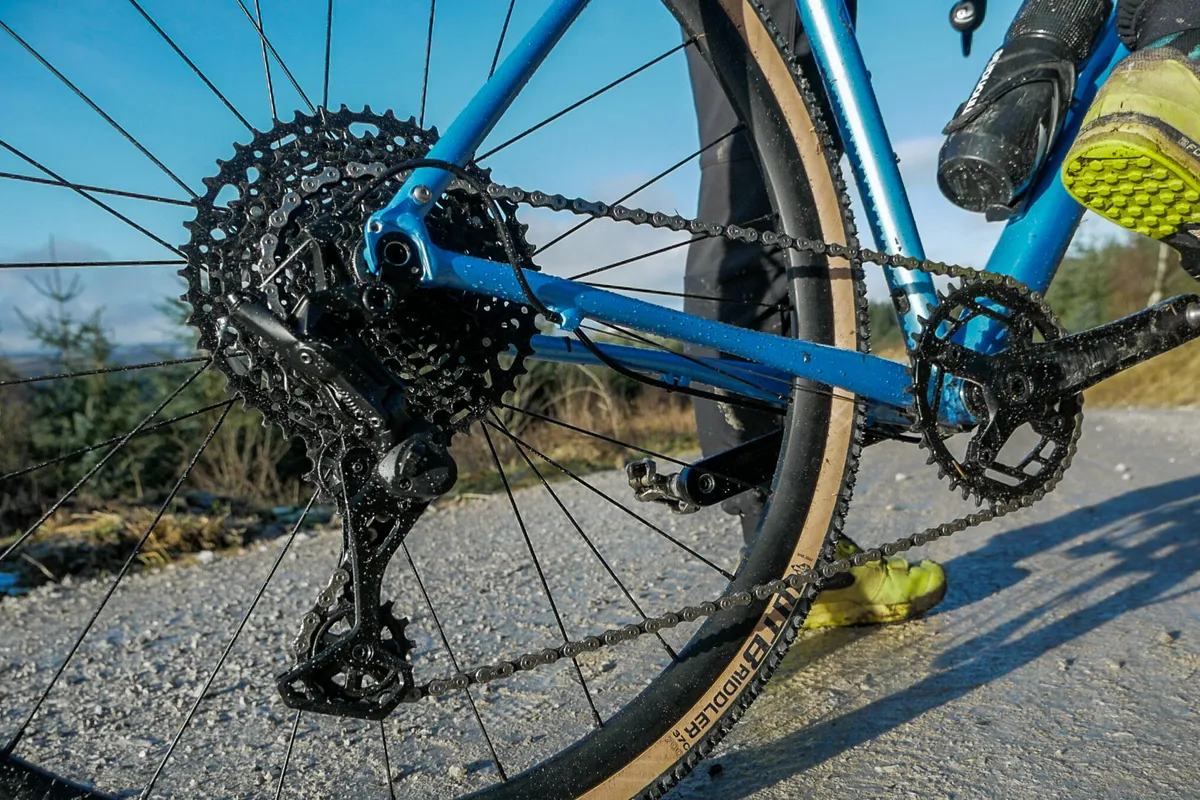
In the simplest form, a mullet drivetrain is a hybrid groupset that pairs road bike shifters with a mountain bike derailleur and wide-range cassette.
Mountain bike derailleurs are compatible with the largest cassettes. Many are also stronger than road or gravel bike derailleurs.
They are increasingly popular as aftermarket or custom-build upgrades because they offer the same (if not greater) range as a 2x setup, but with the simplicity of a 1x drivetrain, while retaining a drop handlebar for position variety on long rides.
How does a mullet drivetrain work?
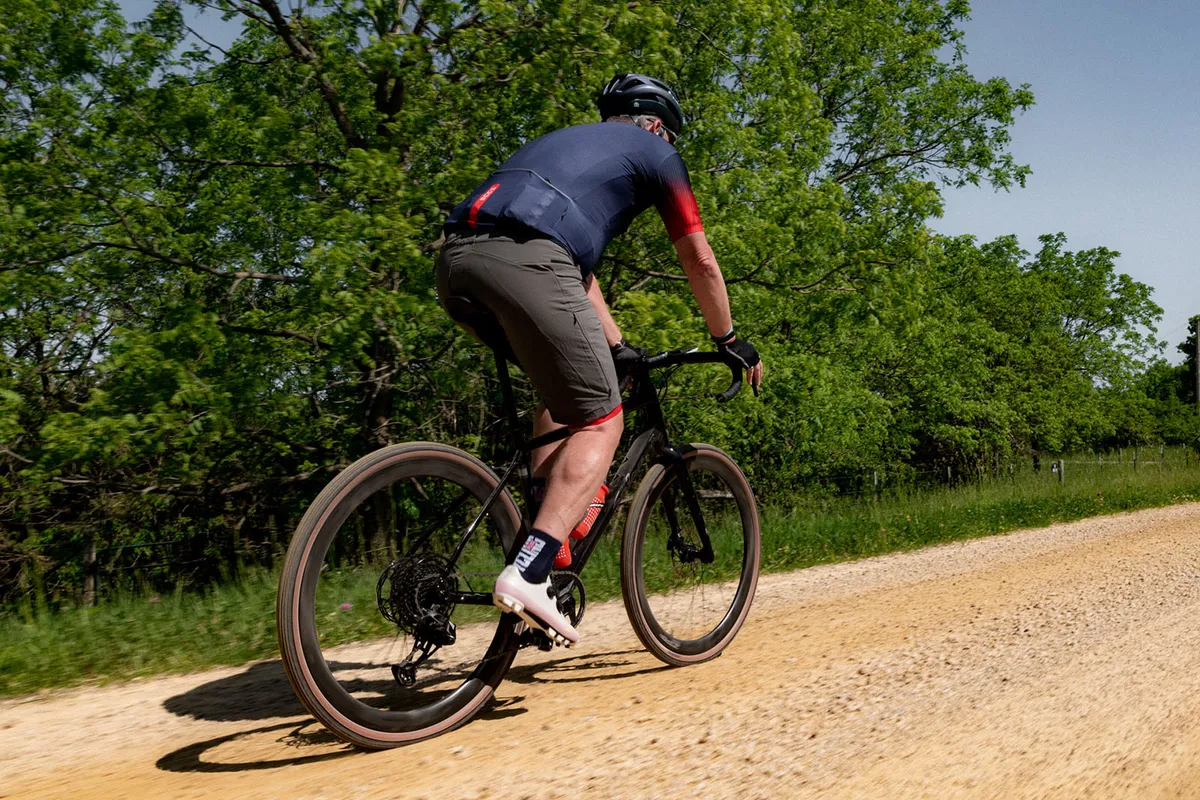
A mullet drivetrain works in the exact same way as a regular road/gravel or mountain bike drivetrain, but only if the cable-pull ratios of road shifters and mountain bike derailleurs are the same.
SRAM and Shimano use different ratios for their mechanical mountain bike and road bike groupsets. This makes combining components across disciplines impossible without an upgrade or adaptor kit.
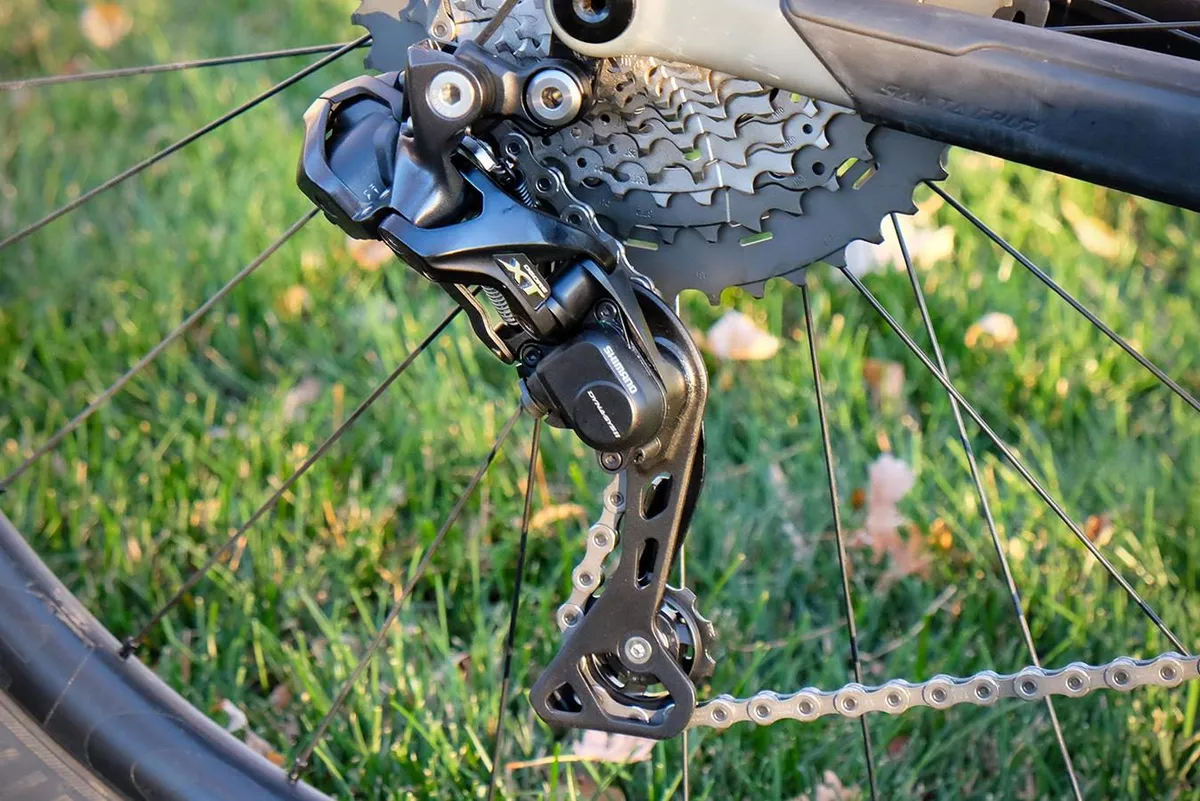
The situation is simpler with electronic groupsets. SRAM AXS derailleurs and shifters will speak to each other regardless of whether they are road, gravel or mountain bike components.
There is also more limited compatibility between Shimano Di2 road, gravel and mountain bike groupsets (full compatibility is outlined on Shimano’s site).
Mechanical mullet drivetrains can also be configured using bar-end shifters, with Microshift making compatible shifters for Shimano drivetrains.
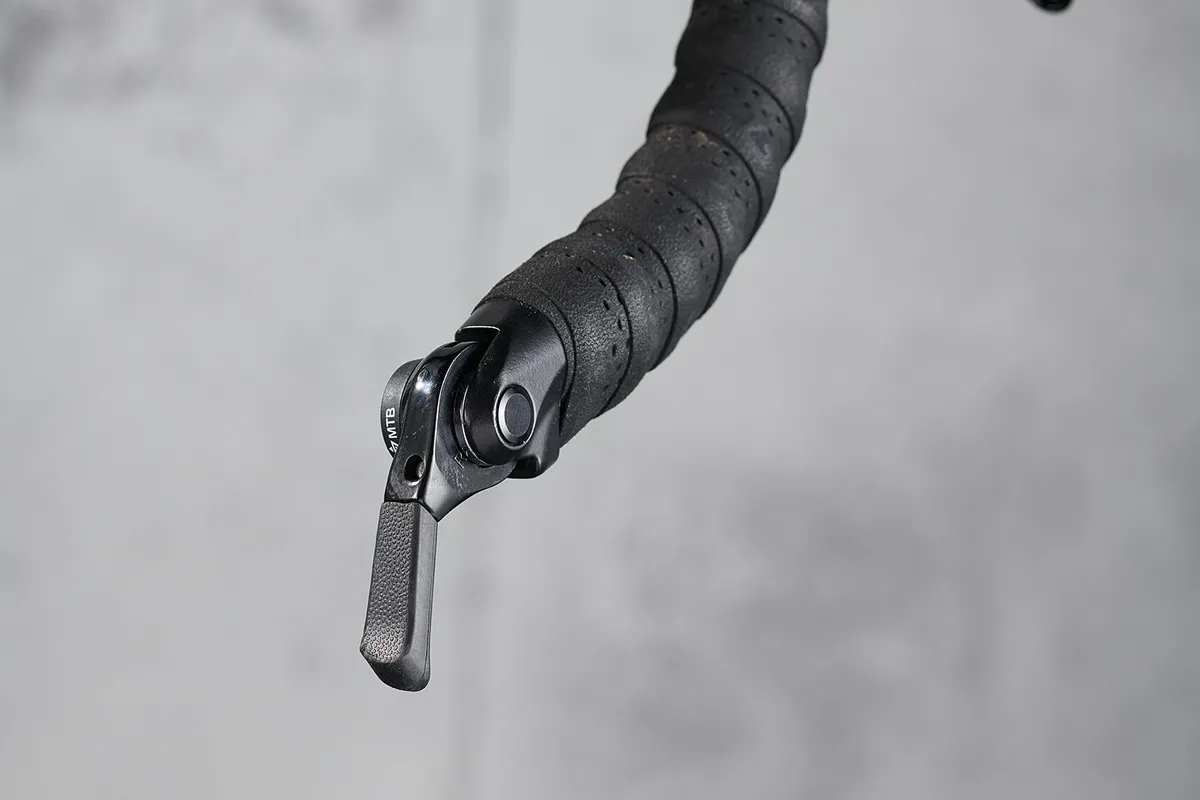
Bar-end shifters are less practical than hood-mounted shifters and can cause knee obstruction in some cases. They are, however, very robust, which makes them a popular choice for hardcore touring bikes and bikepacking bikes.
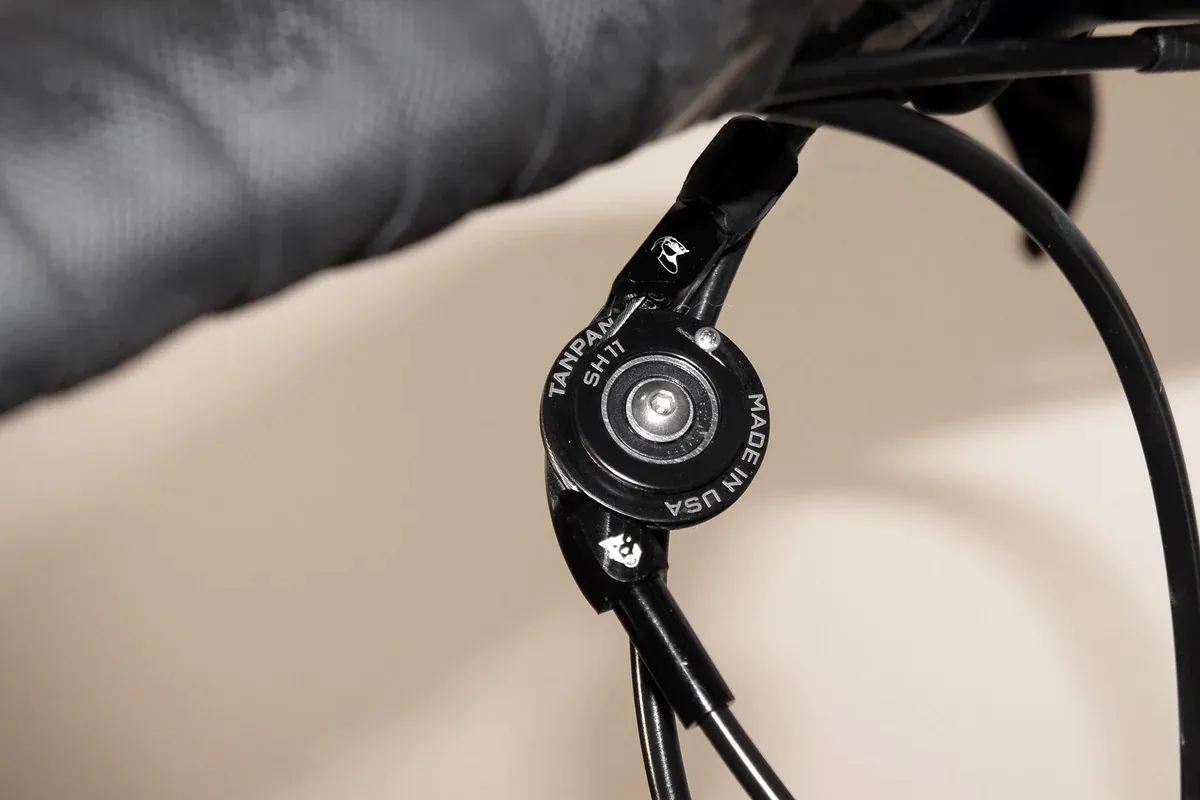
Cable-pull ratio converters, such as the Wolf Tooth Tanpan or Jtek Shiftmate can be used to pair otherwise incompatible components with each other. That means exotic mash-ups – such as pairing SRAM shifters with Shimano derailleurs – can be used.
Which bikes use a mullet setup?
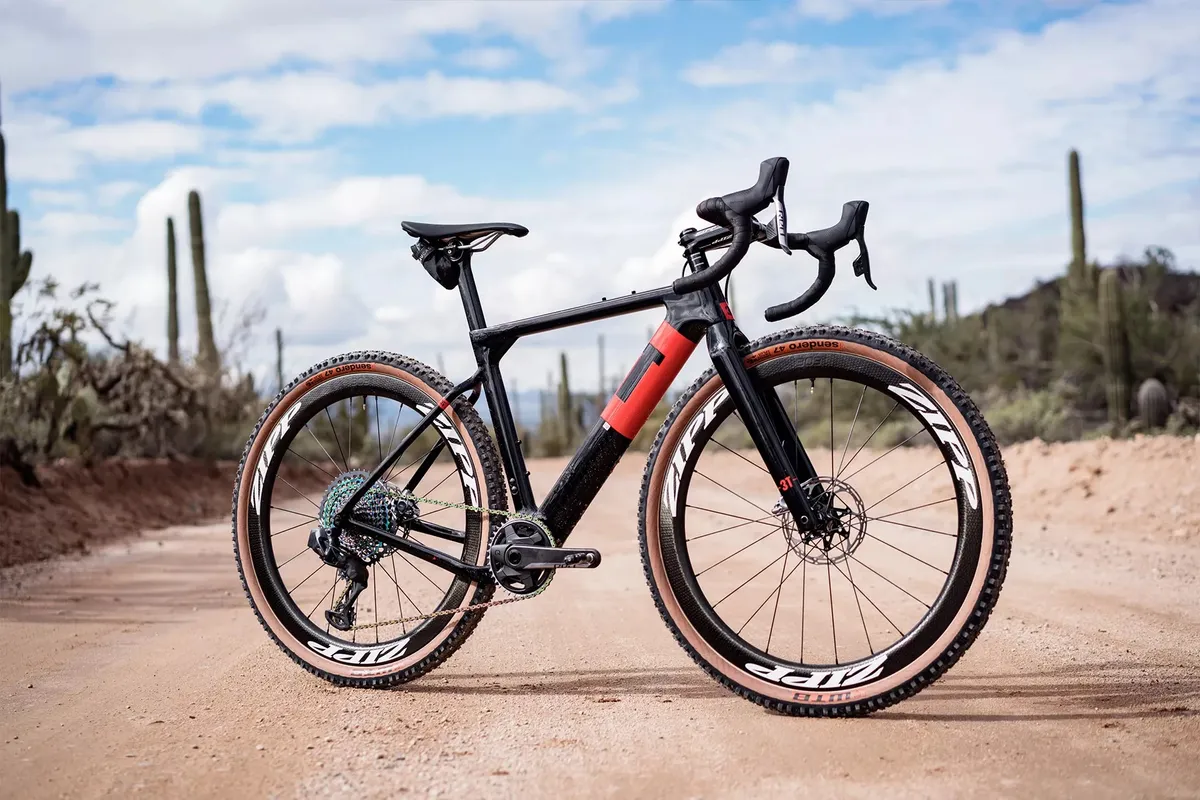
Mullet setups are most common on gravel bikes, where the ergonomics of a drop handlebar pair well with the wide range of a mountain bike drivetrain.
Bikes such as 3T’s Exploro Ultra and Moots’ Routt ESC can be specced with mullet drivetrains, both in the form of SRAM’s AXS and XPLR AXS groupsets.
Some touring bikes will also feature a mullet drivetrain because it allows for a simpler setup with fewer components that may fail, while also giving a gear range that enables you to tap out hills on a heavily loaded bike.
What about gravel groupsets?
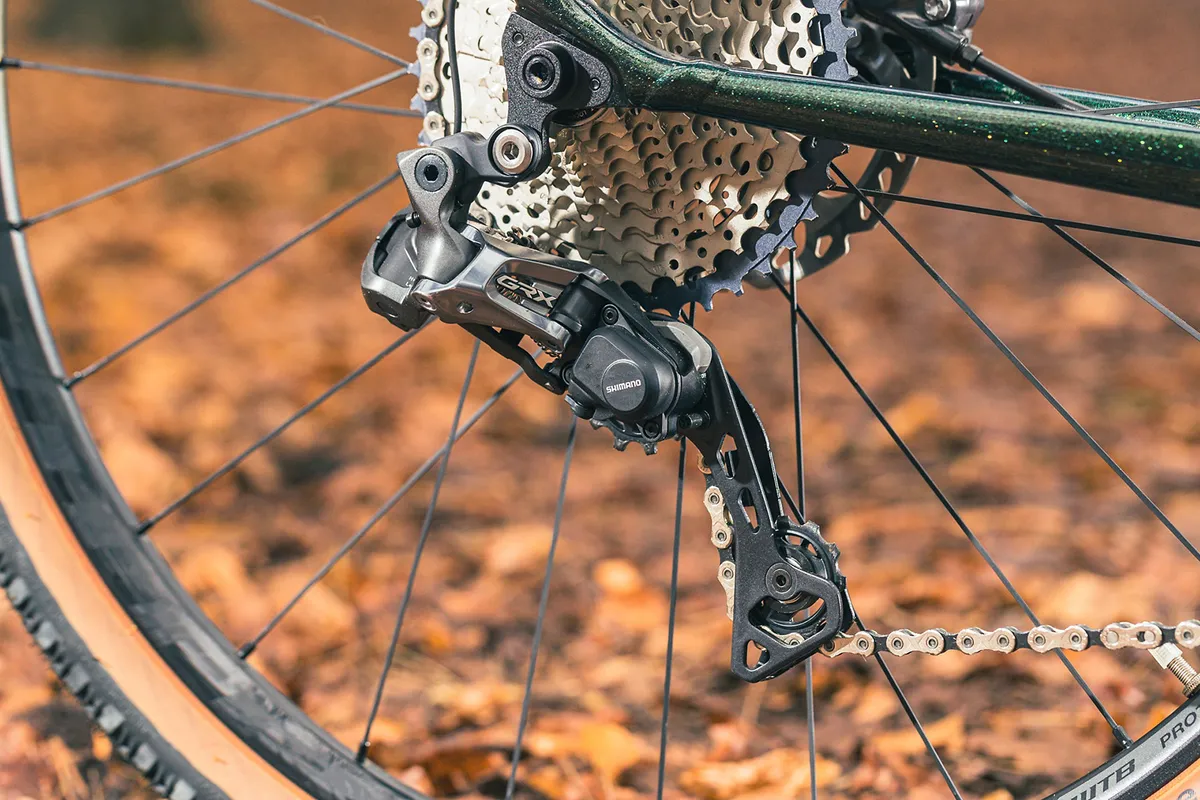
While, strictly speaking, a mullet drivetrain traditionally encompasses both road and mountain bike components, many manufacturers now produce 1x gravel groupsets that nearly match the range of a true mullet setup.
However, both of these gear ranges are still less than a mountain bike derailleur and cassette combo, which often feature cogs north of 50 teeth.
Mullet drivetrains by manufacturer
SRAM mullet drivetrains explained

SRAM's new Red XPLR AXS features a near mullet setup, with the rear derailleur adopting the T-Type mount first seen on its mountain bike groupsets and using a 10-46t cassette, giving it a 460 per cent range.
This groupset does require you to have a frame with the UDH (Universal Derailleur Hanger) interface.
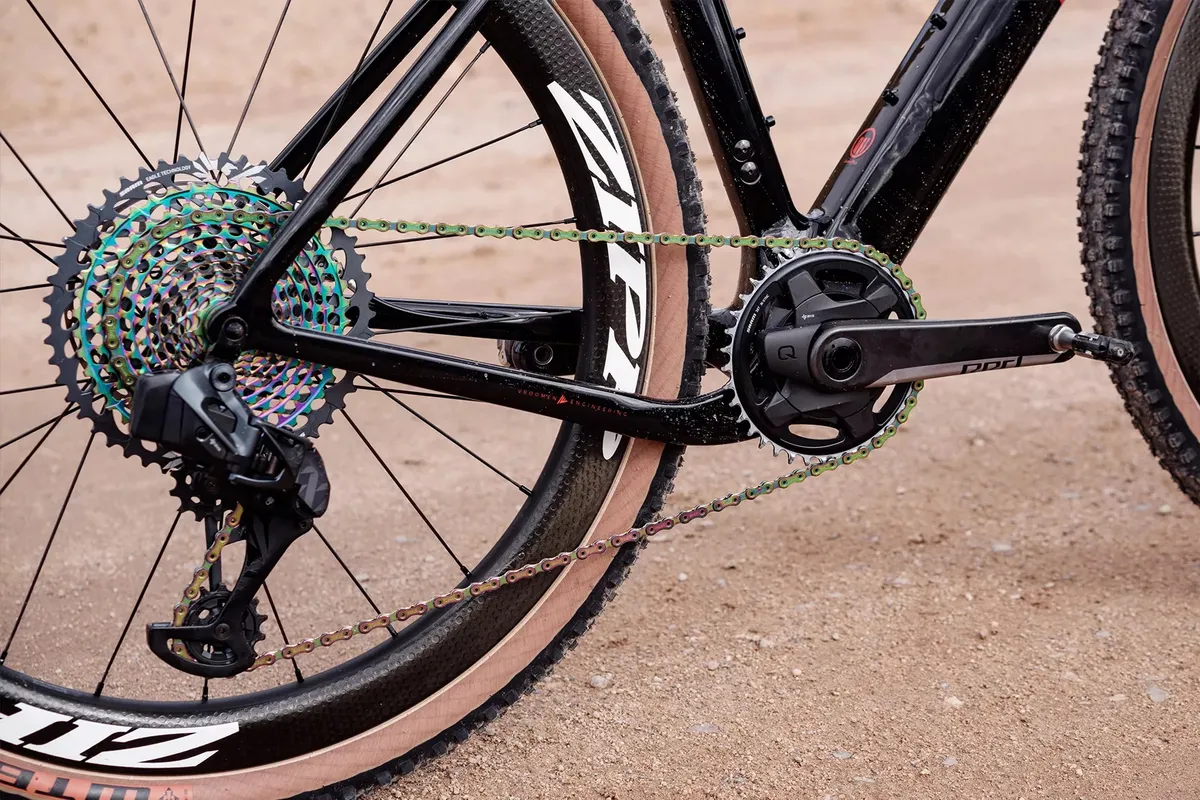
SRAM has fully embraced mullet drivetrains across its AXS range, with all AXS shifters able to be paired with any AXS Eagle rear derailleur.
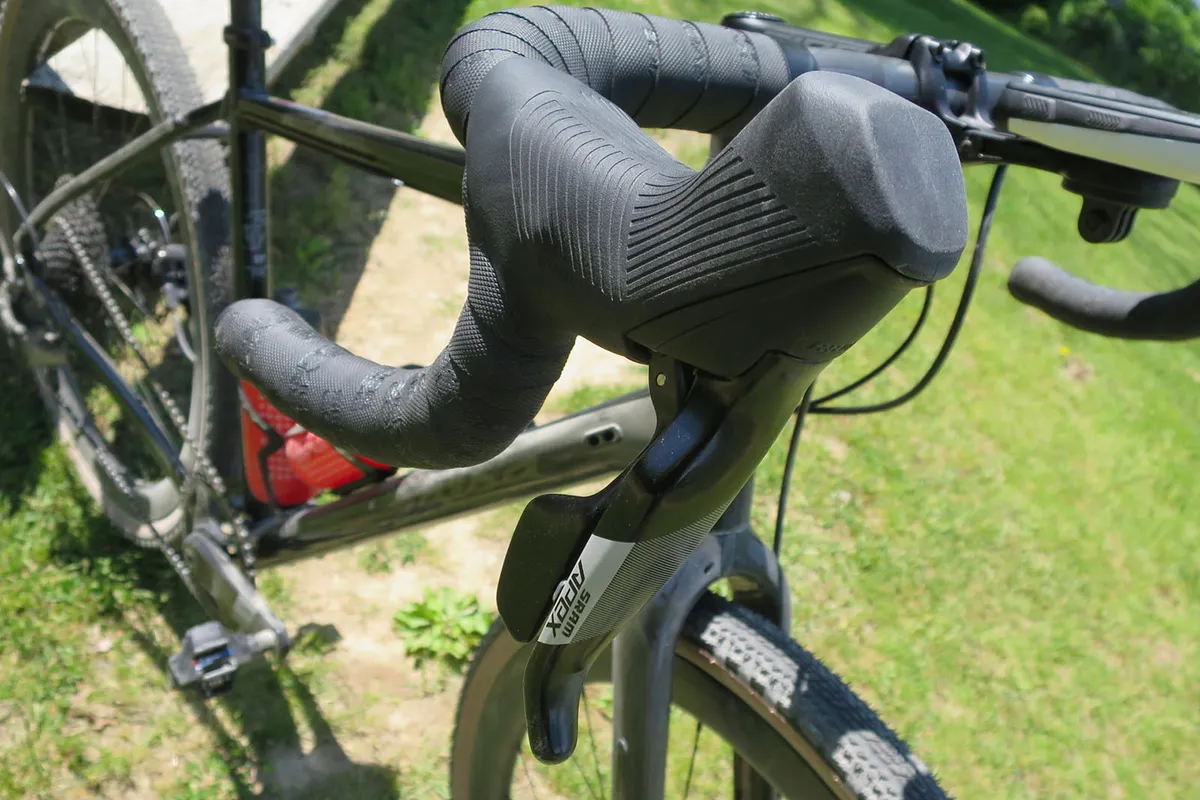
On its mechanical groupsets, SRAM uses two different cable-pull ratios, with Exact Actuation used on the road derailleurs and X Actuation used on the brand’s 1x mountain bike derailleurs, making the two incompatible without modification.
However, SRAM’s new mechanical Apex Eagle levers use the X Actuation pull ratio, making them compatible with all Eagle drivetrains.
Shimano mullet drivetrains explained

Like SRAM, Shimano uses different cable-pull ratios on most of its road and mountain bike groupsets. This means it’s difficult to combine components without a third-party cable-pull ratio adjuster.
Its Di2 groupsets can be set up in mullet orientation, but at this time the solution is more of a bodge than an advertised feature.
Shimano offers a mullet drivetrain on its lower-end 10- and 11-speed Cues and 8-speed ESSA groupset, both featuring 11-45t cassettes.
Both groupsets feature the same pull ratio in their respective ecosystems, with riders having waited for the drop-bar levers to be released to aid a mullet setup.
The Japanese brand has yet to release a mullet setup for its flagship GRX groupset, but we expect to see a mullet offering based around an upcoming XTR groupset.
Microshift mullet drivetrains explained
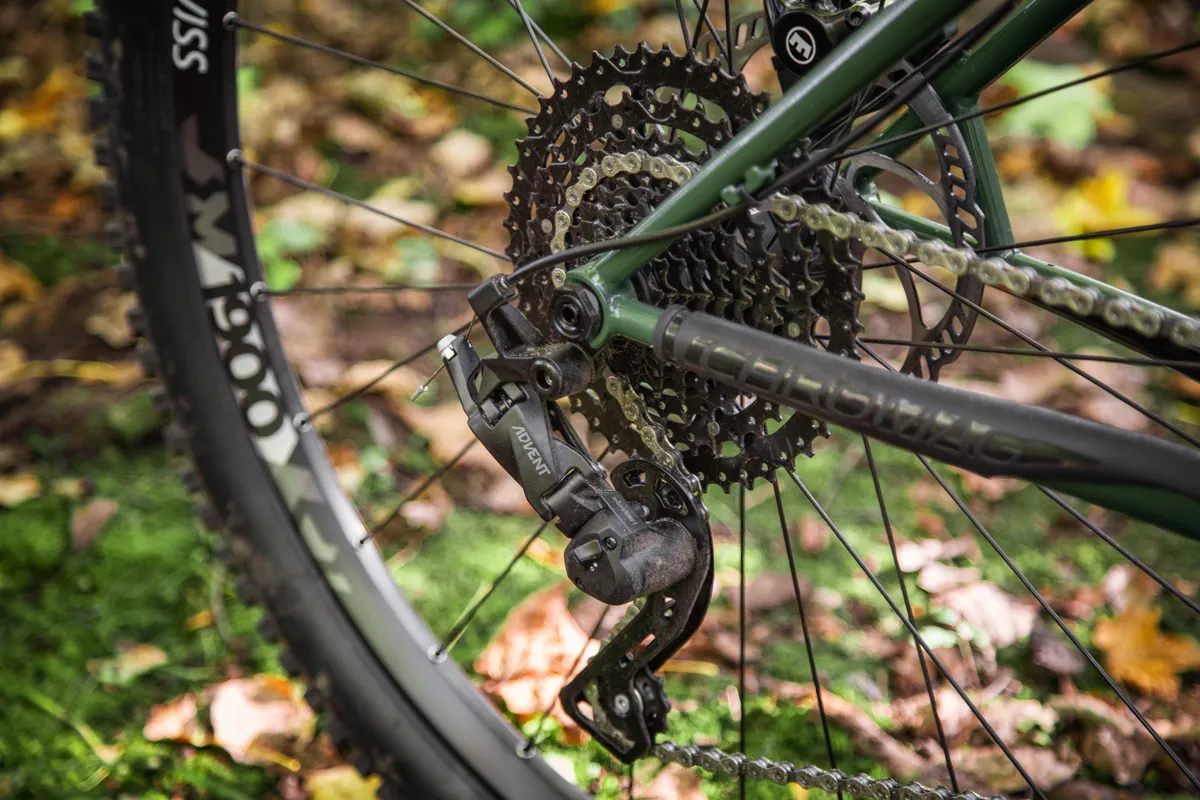
Microshift is unusual in that the same cable-pull ratio is used on both road and mountain bike groupsets, allowing for high levels of compatibility.
The brand's Advent and Advent X range enable you to combine a clutched rear derailleur with a maximum cog size of 46-tooth and a drop-bar shifter, although this restricts you to cable-operated disc brakes.
Microshift also makes a variety of bar-end shifters that are compatible with Shimano and SRAM drivetrains, enabling you to operate a mullet drivetrain and still use hydraulic brakes.
